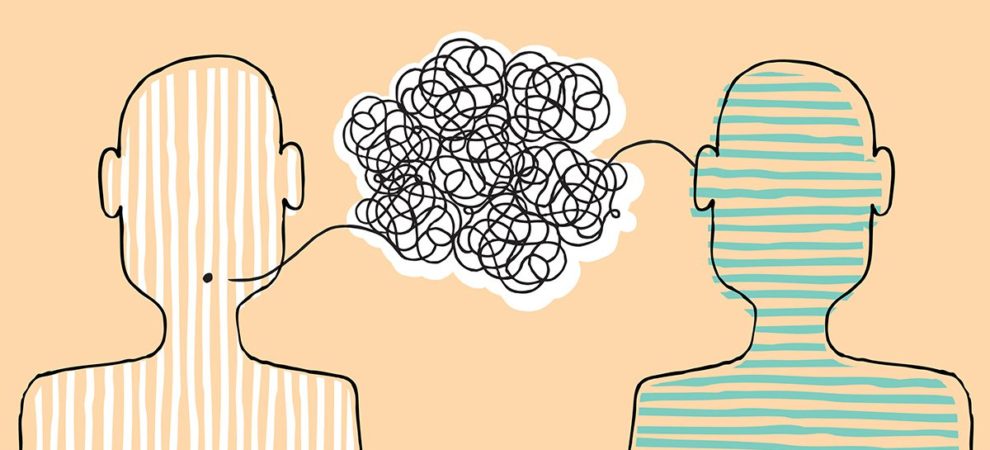
By Sara Veltkamp—
For the past few years, I’ve been sharing my thoughts on New Year’s resolutions for communicators with the incredibly intelligent and well-read followers of the Goddess Speaks. From abandoning fear to five anti-resolutions, I reflect on the year that’s coming to a close and envision the year that’s just beginning.
My 2020 New Year’s resolution is straightforward: to listen more and say less.
Some background: Recently, I’ve been thinking a lot about unexamined beliefs and biases and how the same words can inspire some people to act and others to shut down. This is partially because Minerva is working with the Port of Seattle’s Office of Equity, Diversity and Inclusion to help them map out messaging and a communication plan to support their work for 2020, and partially because I spent time with my family over the holidays for the first time in years.
Most people shy away from tough conversations with family. I follow that approach with more distant relatives, but with my immediate family, I like to talk about things that matter. So, on the four-hour drive down to visit my mom’s side of the family in Ohio, I casually inquired into my conservative parents’ views on abortion, structural racism in the U.S., and the Democratic presidential candidate front-runners.
Usually, these conversations are frustrating for me. I know my parents are intelligent people who care about those beyond their close circles, give their time and money to worthy causes, and have lived and traveled outside of the U.S. I come into these conversations with my own biases about the Republican party, and I find it difficult to swallow that they can align with those whose rhetoric can be racist, and whose policies seem to be mostly concerned with consolidating wealth in the upper classes and are often callous to the plight of people in poverty, immigrants, and the working class.
However, this time, instead of just using my questions as a platform on which to preach, I did something I don’t normally do. I listened and asked follow-up questions. Two amazing things happened: 1) I found out we are fairly aligned on some issues—not a lot, but more than I would have thought—and 2) after I had listened to them, they listened to me. In short, we had a real discussion where neither side arrived in Ohio angry, frustrated, and in need of a drink.
Having biases is unavoidable. Our many experiences lead to assumptions about how the world is, and how other people will—or should—behave. Because they’re just assumptions, biases are often wrong. Too often, we allow political propaganda and second-hand or Hollywood accounts of the world to shape our thinking about entire groups of people based on the color of their skin, what religion they follow, what political party they belong to, or what generation they were born in. Or because they’re our parents.
Effective communication to drive action starts with understanding the perspectives and biases of those with whom we’re trying to communicate, while also understanding our biases and how they get in the way. This type of listening is labor-intensive and difficult for everyone—especially communicators like us who are good at expressing ideas and storytelling. We have something to say about important issues in the world and we want others to hear it and agree with us. The catch is that without listening first and learning what matters to people, we have less of a chance to say something that will move those people to action.
Beyond the benefit of a new and ongoing dialogue with my parents about racism and the political direction of the country, I’ve also noticed that life becomes so much more interesting when I stop talking and let others start. As the Dalai Lama (XIV) said, “When you talk, you are only repeating what you already know. But if you listen, you may learn something new.” When we talk, we have zero potential to be moved by new ideas or create new connections. That type of magic can only happen through listening.
As a communicator trying to drive positive social change, listening well and checking biases is not just about keeping life interesting; the stakes are much higher. The issues that are being discussed matter. Equity, homelessness, treatment for addiction, human rights abuses, education, government accountability—these issues are important, and we all have opinions about how to define the challenges and how to solve them. We need to listen to each other to create meaningful change.
If you’re interested in joining me on this quest to listen more and better, please reach out to sara[at]minervastrategies[dot]com. Also, on our next call together if I’m talking too much, hold me accountable and ask me to listen.